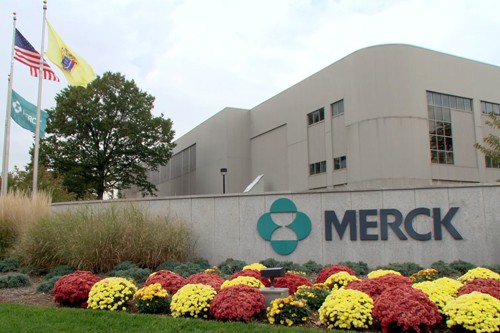
In a new study headed by Queen Mary University of London and Barts Health NHS Trust, Merck & Co’s – known as MSD outside the US and Canada – immunotherapy drug Keytruda (pembrolizumab) has been shown to significantly reduce the chance of breast cancer coming back, if administered at the right time and used in combination with chemotherapy.
Keytruda is already used for a number of different types cancer and works by helping the immune system destroy cancer cells.
The study, Keynote-522, has been published in the New England Journal of Medicine and provids evidence showing the positive effect of adding immunotherapy to chemotherapy ahead of a breast cancer patient’s surgery to remove their tumour.
The standard of care currently available for patients living with early-stage TNBC is chemotherapy, which is used to shrink the tumour before surgery takes place.
Women diagnosed with cases of early triple-negative breast cancer (TNBC) where the disease had not progressed beyond the breast and lymph nodes – markers in stage 2 and 3 – were treated with Keytruda, which supplemented standard chemotherapy prior to surgery, with a follow-up treatment using Keytruda after surgery.
The risk of the disease reoccurring was recorded as being 37% lower in patients treated with the Keytruda and chemotherapy combination, compared to those only treated with chemotherapy, after a follow-up period of more than three years.
It is estimated that around 15% of all breast cancers – with more than 8,000 cases per years in the UK – are diagnosed as TNBC.
The trial, funded by MSD, involved 1,174 patients across 21 countries with previously untreated stage 2 or 3 TNBC. As part of the trial, 784 patients were randomly allocated to receive the combination of Keytruda and chemotherapy before surgery, while 390 patients were allocated placebo in combination with chemotherapy.
After their surgery, patients continued to receive either Keytruda without chemotherapy, or placebo.
The study lead, Professor Peter Schmid from Queen Mary University of London and clinical director at St Bartholomew’s Hospital, said: “We had previously demonstrated that the addition of immunotherapy to pre-operative chemotherapy increases the treatment response in patients with triple-negative breast cancer at the time of surgery.
“We now have long-term results demonstrating that the combination therapy significantly reduces recurrences by approximately 37%, including reduction of secondary breast cancer by 39%.
“This means that the cure rate for these cancers is significantly increased. The estimates are that, just in the US where this treatment was recently approved by the Food and Drug Administration, this new treatment may save as many as 10,000 lives per year.”




